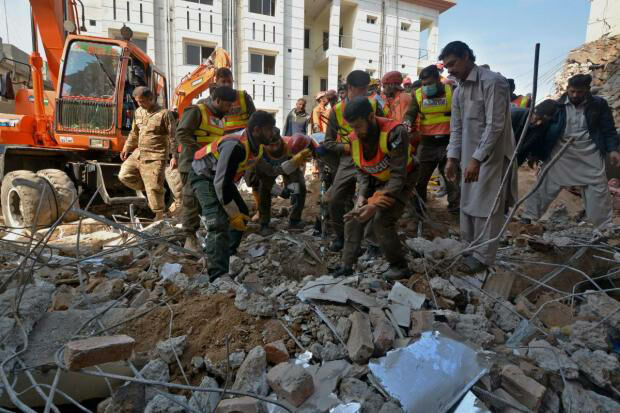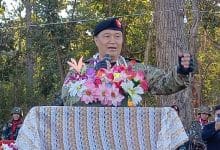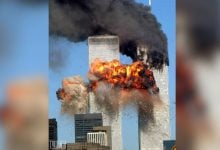Death toll rises after suicide bomb in Pakistani mosque, expert calls it ‘national security crisis’

UPDATE
Following the horrific suicide bombing at a mosque in Peshawar, Pakistan on Monday, the death toll has risen from 59 to at least 100, according to a hospital spokesperson.
The spokesperson for Lady Reading Hospital, Muhammad Asim Khan, said that at least 100 people have died following the attack. Meanwhile, the Inspector General of Peshawar Police Moazim Jah Ansari, said that 2,017 people were injured.
Photos and videos from the scene show the rubble remaining of windows and walls in the mosque.
There have been conflicting claims on which group is responsible for the attack. On Monday, officials from the Pakistani Taliban (TTP) claimed the bombing was “revenge” for the death of one of its militants last year. However, the TTP’s main spokesperson later denied the group was involved in the attack, CNN reported.
Pakistani authorities have not confirmed either claim and say an investigation is underway.
The deadly attack has raised alarm bells over Pakistan’s spiralling security situation. A fellow in foreign policy at the Brookings Institution in Washington, Madiha Afzal, said the 2021 Taliban takeover in Afghanistan has “emboldened” the TTP and other terror groups. Afzal said…
“This is now a national security crisis for Pakistan once again. The solution has to be a concerted military operation (against the TTP).”
Afzal added that this was complicated by the fact that the TTP can cross the border into Taliban-ruled Afghanistan.
The Human Rights Commission of Pakistan stated that the attack could have been prevented if the government had heeded warnings from society about extremist clothing in their provinces.
Afzal echoed this sentiment as well, calling Pakistan’s policy towards terrorist groups “sloppy.”
ORIGINAL STORY
Peshawar, Pakistan was the site of a devastating suicide bombing yesterday as a bomber detonated himself in a crowded mosque. The attacker targeted a mosque in a highly secure compound known as the “Red Zone,” which houses counter-terrorism and police offices.
Some 400 worshippers were inside the mosque when the bomber detonated explosives, resulting in 59 deaths, with 27 of them being police officers.
Many of the 170 injured worshippers were listed in critical condition and rescuers worked to reach those trapped in the rubble of the partially collapsed mosque. The bombing occurred just as everyone lined up for prayers.
The security lapse that allowed the bomber to reach the secure mosque remains under investigation, but authorities are looking into the possibility of inside help. The suicide bomber had to pass through security guards at multiple barricades to get inside the compound and to the mosque.
Many witnesses described the chaos of the aftermath of the bombing, as the upper level of the mosque collapsed, trapping victims. Rescuers cut through the rubble and raced to get the wounded to hospitals while police worked to secure the scene.
No group has claimed responsibility for the bombing, making it unclear who was behind this devastating act of violence against the mosque. The Taliban group known as Tehreek-e-Taliban Pakistan denied responsibility for the bomb, though Islamist militant groups, including Islamic State and the Pakistani Taliban, have frequently targeted Peshawar in the past.
The mosque bombing is especially damaging to Pakistan as it came a day before the International Monetary Fund was set to arrive in Islamabad. They planned to discuss unlocking funding for Pakistan’s struggling economy.
Prime Minister Shehbaz Sharif said that an attack targeting Muslims during prayer is counter to Islam. He called on members of his political party to donate blood and expressed his condolences to the victims and their families.
“The sheer scale of the human tragedy is unimaginable. This is no less than an attack on Pakistan. The nation is overwhelmed by a deep sense of grief. I have no doubt terrorism is our foremost national security challenge.”
Latest Thailand News
Follow The Thaiger on Google News:


























